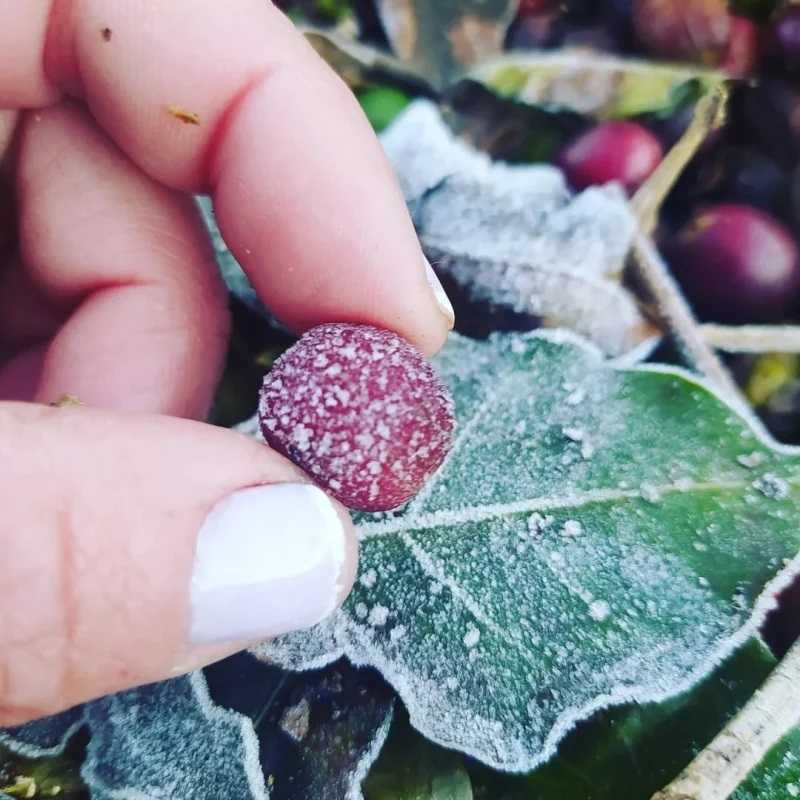SAO PAULO; Brazil – The frosts registered in the coffee-producing regions in Brazil between July 19 and 20 boosted the domestic prices for arabica coffee. Thus, the CEPEA/ESALQ Index for arabica coffee type 6 (delivered to São Paulo city) surpassed 1,000 BRL/60-kilo bag, a nominal record in the series of Cepea, which began in 1996. Low temperatures were registered in all arabica-producing areas in Brazil, and, according to agents, from 5 to 30% of crops – depending on the region – may have been affected by the frosts.
The most severe frosts were registered in northwestern Paraná, southern Minas Gerais and in some areas in the Mogiana Paulista
However, total damages have not been assessed yet. Agents are mostly concerned about production next season (2022/23). The productive potential of crops will certainly be reduced, but accurate estimates about losses are supposed to be released in the coming weeks.
As for prices, on July 30, the CEPEA/ESALQ Index for arabica coffee type 6 (delivered to São Paulo city) closed at 1,014.44 BRL (195.20 USD)/60-kilo bag, 20.16% (a staggering +170.23 Reais/bag) up in the month. On July 26, this Index closed at 1,067.27 BRL/bag (206.24 USD/bag), a new nominal record in the series of Cepea. In real terms, this is the highest level since January 2012 (values were deflated by the IGP-DI from Jun/21).
Despite the valuations, only a few agents were interested in closing deals in late July, due to the high volatility of prices and expectations for new rises. As regards the US dollar, it closed at 5.197 BRL, 4.5% up in the month.
It is important to highlight that, besides the frosts, agents are also worried about the dry weather in most Brazilian regions since April. The combination of low temperatures with lower water reservoirs may reduce the productive potential of crops even more in 2022/23, which may lead prices to swing widely in the coming months.
Robusta
The prices for robusta coffee increased in July too, reflecting the strong price rises for arabica coffee after the recent frosts, the risk of lower supply in the 2022/23 season and technical movements. It is worth to mention that frosts were not registered in the robusta-producing regions in Brazil.
On July 30, the CEPEA/ESALQ Index for the robusta type 6, screen 13, Espírito Santo, closed at 580.56 BRL (111.71 USD)/bag, 16% up in the month.
Some deals for robusta were closed in late July, but the high volatility of prices and perspectives for higher valuations – due to the negative estimates for the output in 2022/23 – are keeping farmers away from the market.
Exports
The Brazilian coffee exports in the 2020/21 season set a new record. Between July/20 and June/21, Brazil exported 45.59 million bags (60 kilos) of coffee (considering green, roasted and soluble beans), the highest volume in the series of Cecafé (Coffee Exporters Council), which began in 1990, and 13.3% up from that in the 2019/20 season. Until then, the highest amount exported was registered in 2018/19, when Brazil shipped 41.4 million bags of coffee. Considering only green beans, exports totaled 41.63 million bags in 20/21, 15% more than that in the previous season.
The record volume exported was a reflect of both the high output in the 2020/21 season and the strong dollar, which encourages farmers to sell coffee to the international market and increases the competitiveness of the Brazilian product. Despite the good performance, in the last months, agents reported that the lack of containers and the low availability of ships (because of the covid-19 pandemic) hampered and delayed coffee exports. Cepea collaborators believe that these logistic issues may still last in the coming months.
















